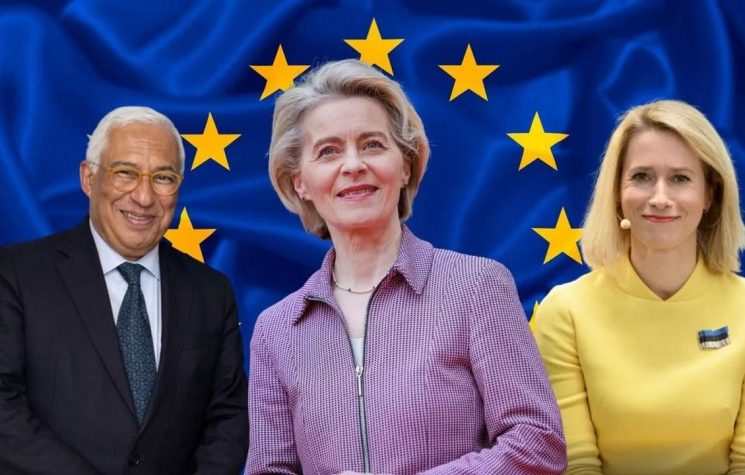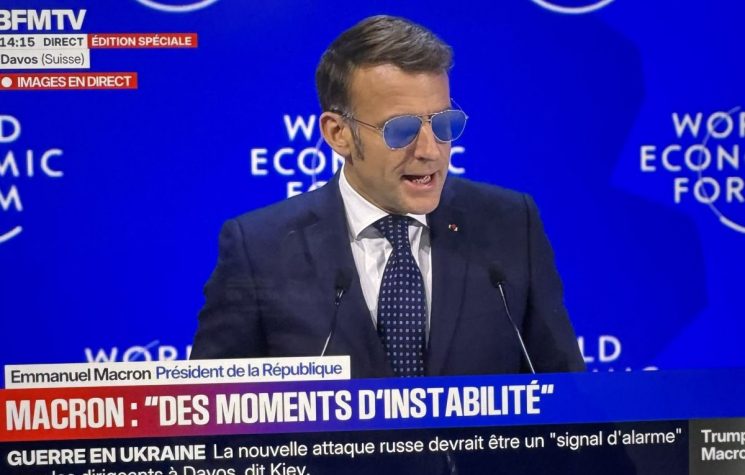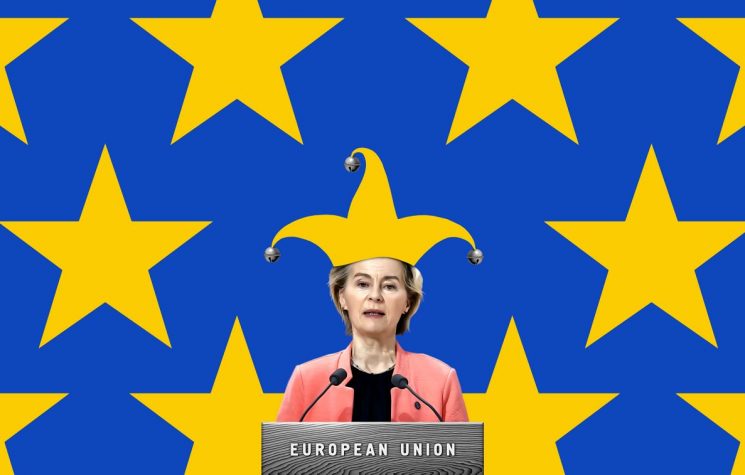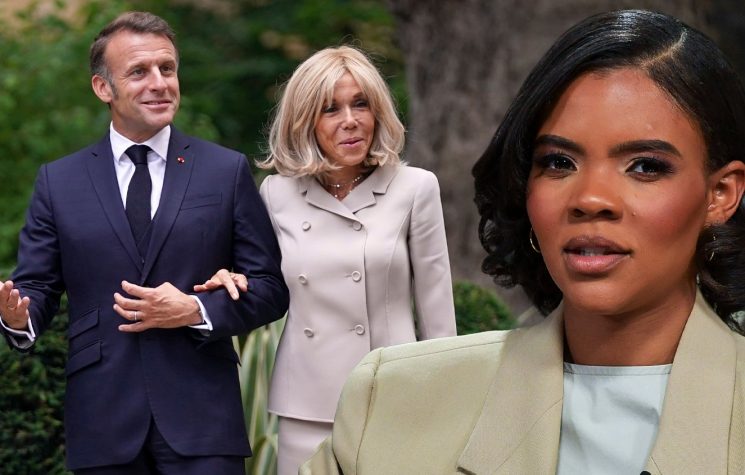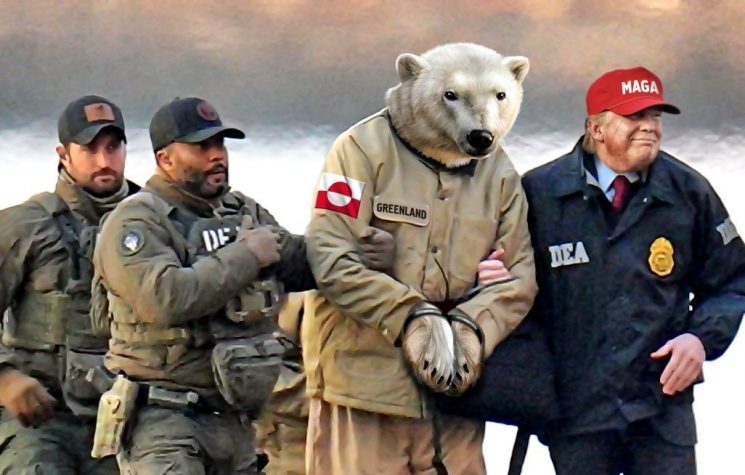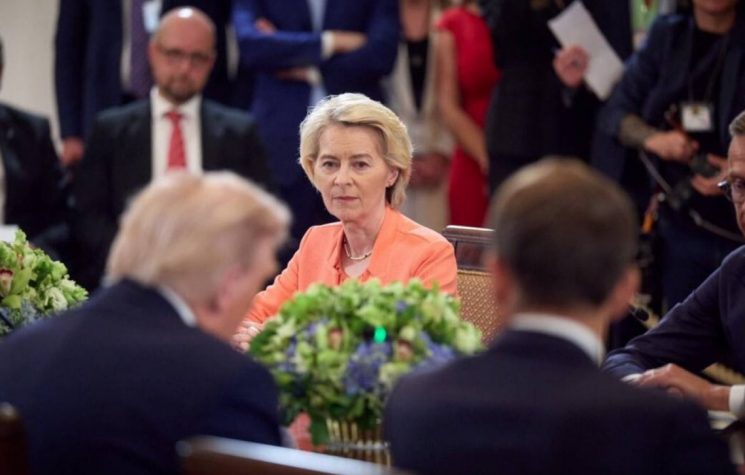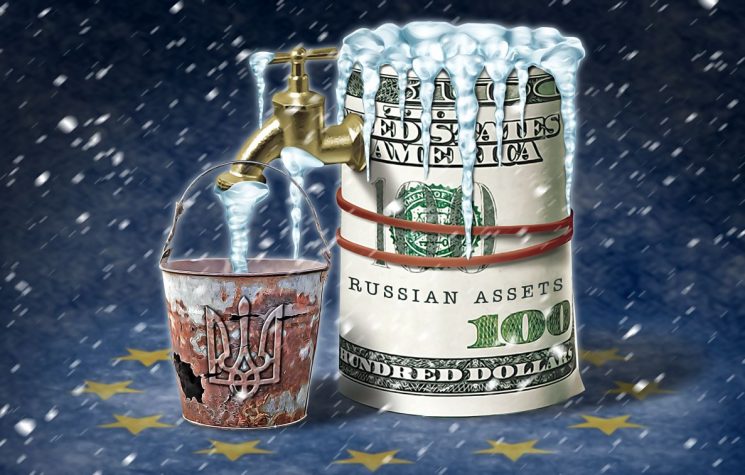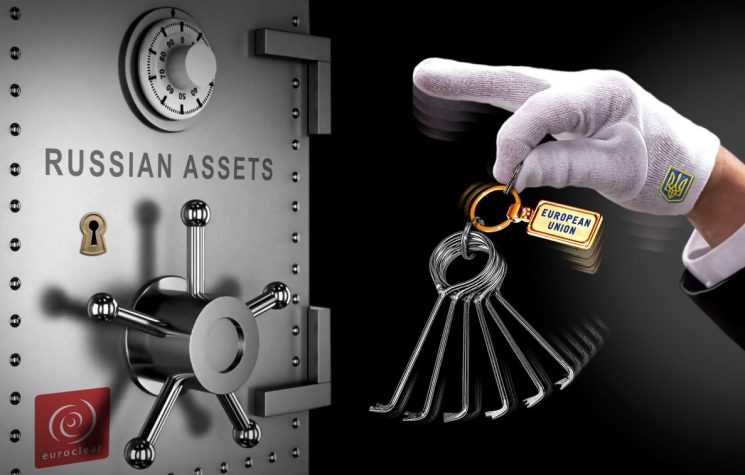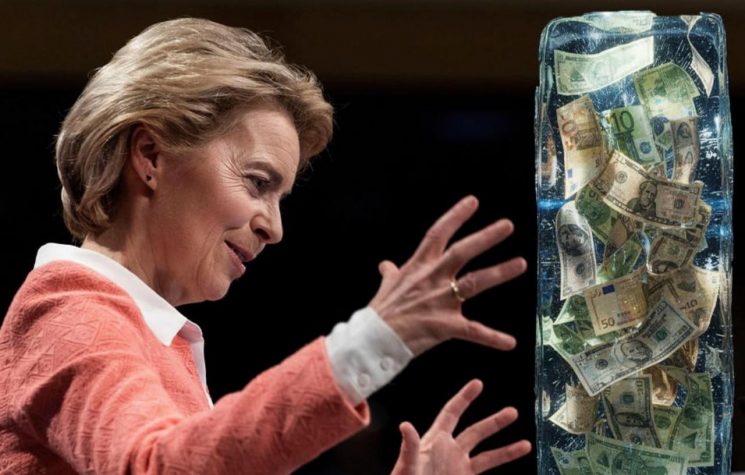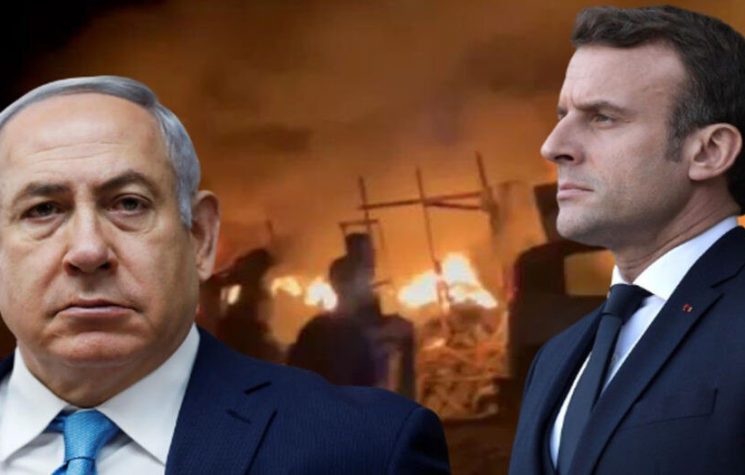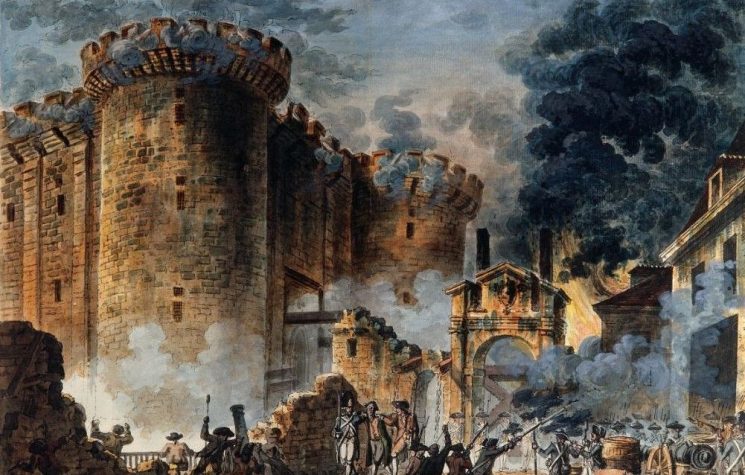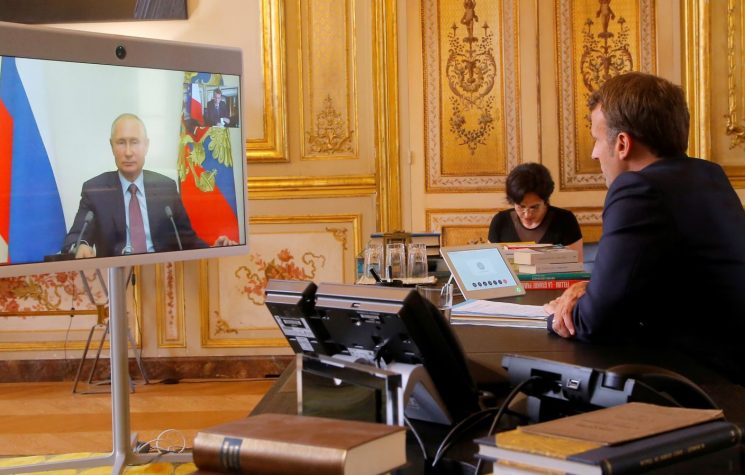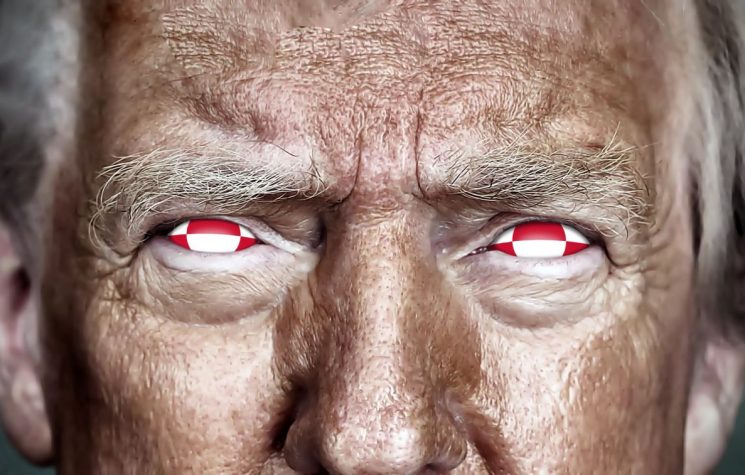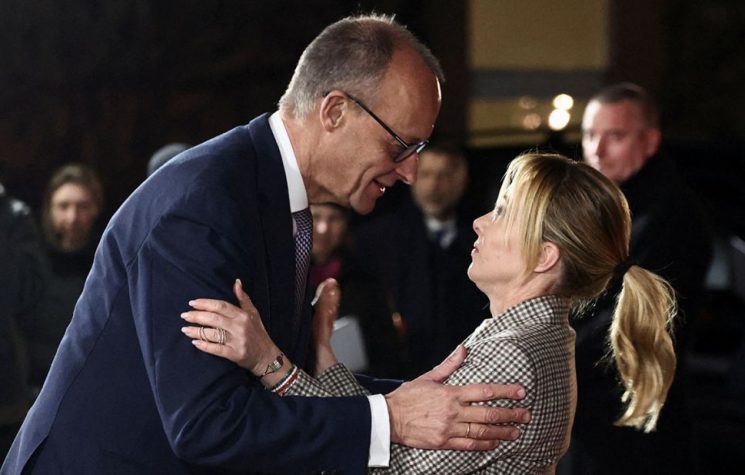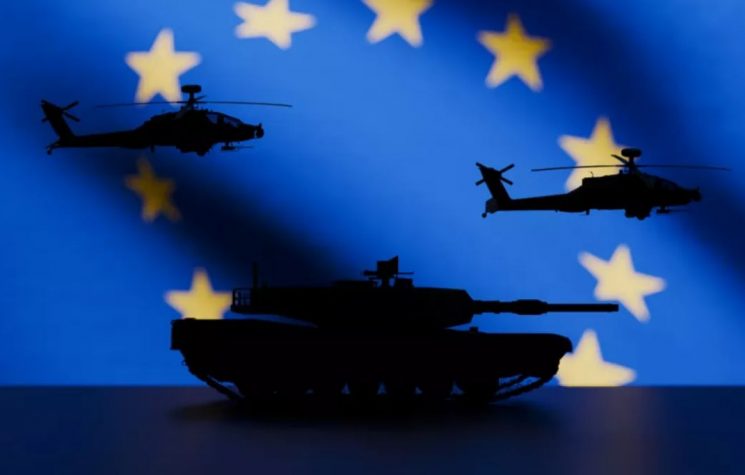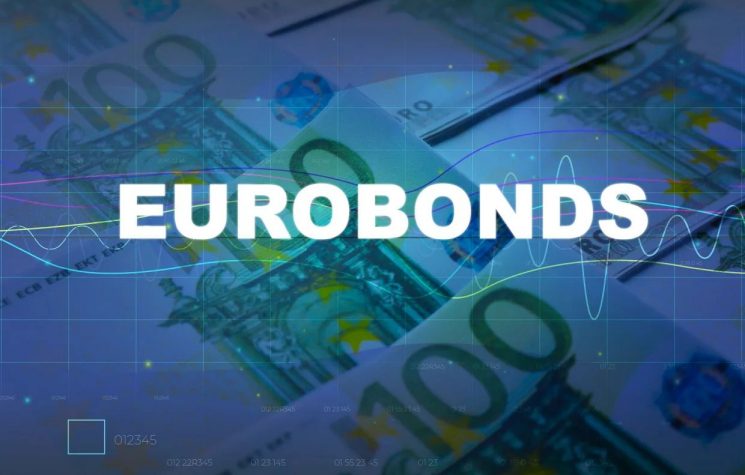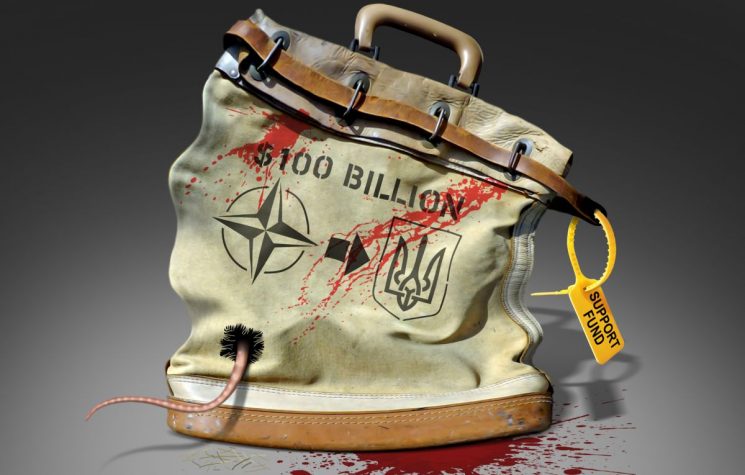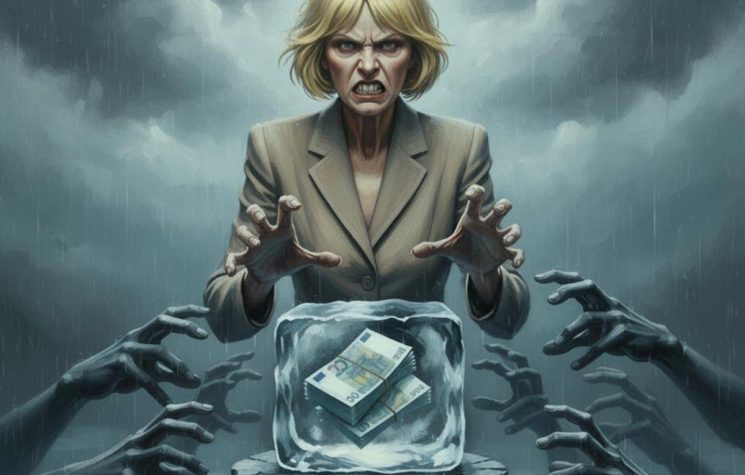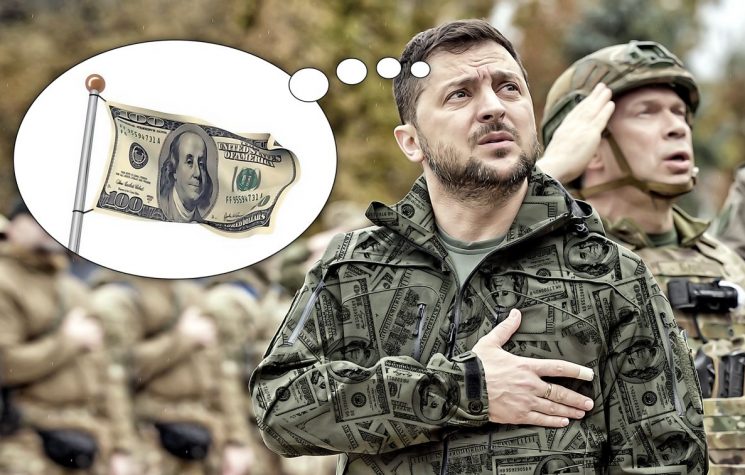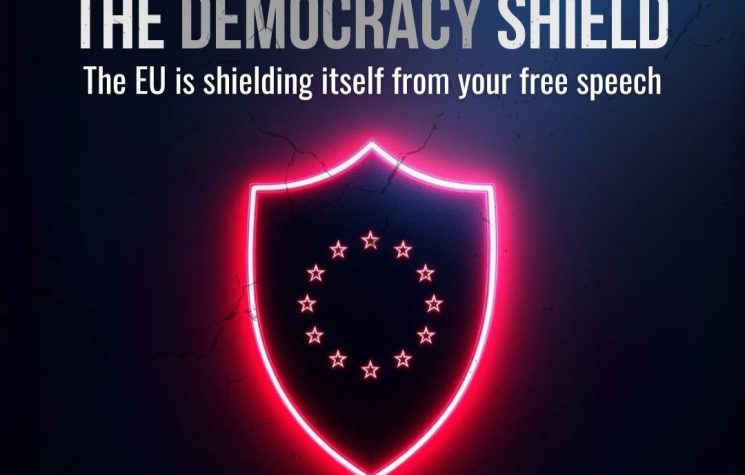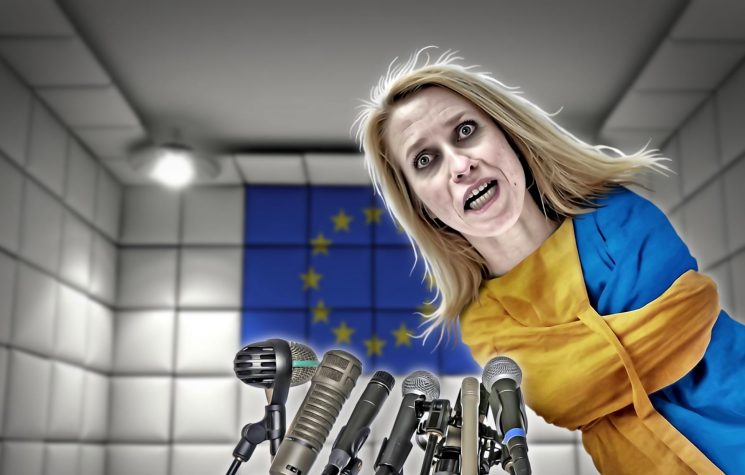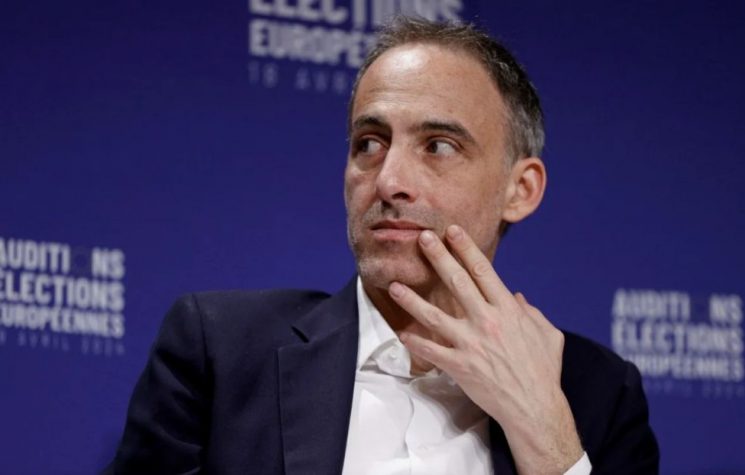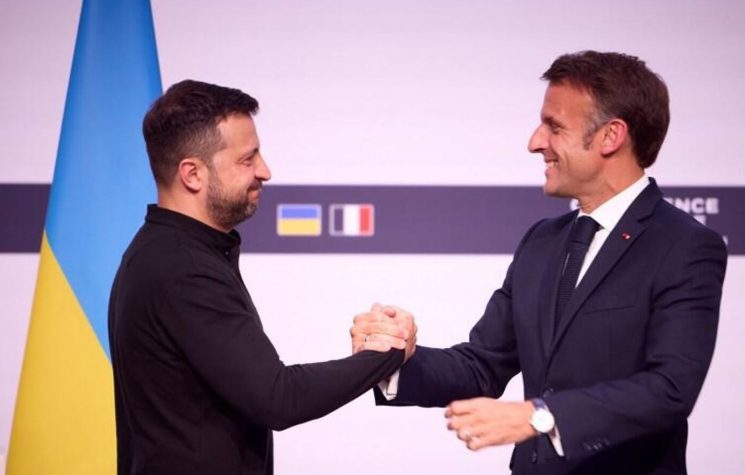There are opportunities in history that only come around rarely, some only once. Today, perhaps, we are at one of those crossroads.
Contact us: info@strategic-culture.su
There are opportunities in history that only come around rarely, some only once. Today, perhaps, we are at one of those crossroads.
A tango in Paris
They met in Paris, as if it were 1946. A glass of champagne was ordered, a classic method. The table was set close together to give the impression that they were old friends meeting for a chat, or as we would say today, a “short talk”. In the center, Ursula, in all her Mephistophelian splendor, begins the meeting. The atmosphere is that of a war at the gates, it is not clear if it is an entry or an exit war, and the discussion must lead to a peace agreement… oh no, the discussion is centered on how to wage war, who to send in first and how much to sacrifice the European people.
It seems like the beginning of a thriller, perhaps a splatter movie, but instead it is the beginning – or perhaps the epilogue – of an international scenario that sees Europe treated like a prostitute. A Europe that has chosen to find itself in this condition, after refusing to recover from the defeat of the Second World War that had placed it under the control of the UK and the USA, and that has perpetrated harmful policies that have starved the European people.
Europe’s number one enemy is the European Union. The great deception of the Maastricht Treaty, which was already like a dinner invitation with the devil, and which has gone as far as an incestuous marriage of political horror.
The Paris summit between European countries to discuss the war in Ukraine only serves to signal once again the now evident death of the European Union, which is very much like a zombie that still walks but has long since abandoned the life.
One could argue, with good reason, that the end of the conflict in Ukraine marks the end of the European Union. Vladimir Putin’s Russia and Donald Trump’s United States, the blond-haired man who shakes the world, have already decided that the war must end, completely excluding the European Union from the negotiations. The EU is treated like a subordinate without dignity, and rightly so, since it has adopted the role of servant from the very beginning. Together with Zelensky’s Ukraine, a NATO puppet, a product of Washington if not of Hollywood, it represents the real defeat of the conflict. Not only for having been humiliated and ignored in the peace negotiations, but also for now finding itself in a weaker position than before the war broke out.
Washington’s victory can also be seen in this: the European Union is now even more under the control of the United States, after breaking its ties with China and Russia, finding itself completely dependent on Washington. The war in Ukraine wasn’t just a conflict between the dollar civilization and Russia, accused of not submitting to its rule: it was also a war that Washington waged against the European Union, punishing it for its previous inclinations towards Moscow and Beijing, and making it even more subordinate to its hegemony. Just think of the gas issue: Europe used to buy gas from Russia at a low price, but now it has to buy it from the United States at an exorbitant price. It’s all quite evident. And we can’t ignore the deep crisis in Germany, once celebrated as the locomotive of Europe.
Today Germany is experiencing a recession that is mainly affecting the automotive sector, one of the pillars of the economy. What would happen if Germany collapsed? It’s not difficult to imagine: the entire system of the European Union, built on a technocratic model, would risk collapsing like a house of cards, an empty temple that celebrates financial capital and humiliates the workers and the middle classes on a daily basis.
If the European Union must fall, then let its destiny be fulfilled. The question is whether or not the European people are ready to bear the weight of a mammoth corpse that has titanically devoured not only the economy, but also the identity of what is called “Europe”.
Meanwhile, in Paris, the gala evening has taken place, capturing on camera the table of losers who are now rushing to take turns trying to grab some change from the winners. The music has ended, the tango has ended. Will there be another dance, or is it time to say goodbye?
Meanwhile, in Riyadh…
Meanwhile, the USA and Russia sit down for the preliminary phase of the peace talks (they’re already being called that, even if it’s not clear what peace the press is talking about). The meeting in Saudi Arabia, which marks the beginning of a series of dialogues, cannot be considered a real peace agreement for Ukraine. Instead, it seems more like an attempt to re-establish a reliable channel of communication between the two parties, i.e. the basis for rebuilding, in some way, a relationship between two powers that have been indirectly, and even quite intensely, confronting each other.
For this reason, Ukrainians and even Europeans have been excluded, with Europe remaining in a marginal position on the world stage.
As a peaceful solution for Ukraine is not on the cards, the United States is considering leaving the country to its own devices, a possibility that may have been suggested by Trump, who has hinted at the possibility of Ukraine becoming part of Russia in the future. This doesn’t mean that the current administration is no longer interested in the situation on the ground, but it probably has to do with economic interests: exploiting Ukraine to recover the investments made by the USA. If the Ukrainians are not willing to give in, the alternative or the threat could be to let the Russians do it.
My impression is that the ongoing conflict is not the real objective of the negotiations (rather a pretext), and that resolving the issue quickly is not a priority for the US administration. They may succeed, but if not, they will try to minimize it in the media, making the issue slip off the radar. The EU, on the other hand, acting as the representative of traditional democrats and globalists, will try to keep the issue alive, at least until the new wave of populist/sovereignist governments (to use a term) has taken hold in some European capitals.
The Trump administration, on the other hand, will try to use the war negotiations as leverage to obtain concessions on other larger issues (such as Greenland or Moscow’s isolation from Beijing?), along with a relaxation of sanctions. The Russians don’t seem willing to give in easily, nor to forget the various “failures” of the Minsk agreements, so the situation remains open, with future talks that may not lead to an overall solution. These are experiments on both sides.
As for the war in Ukraine, I don’t think anyone expects a quick end and perhaps even the Americans hope that the reduction in aid and the deterioration of the situation on the ground will lead Kiev to reconsider its position.
Ukraine is already in NATO, otherwise the war wouldn’t be happening. The problem is that it has to get out of it. It follows that when Trump says that Ukraine will not join NATO, he means that Ukraine will be demilitarized because Ukraine, without NATO, has no weapons.
Will a new model emerge?
The main issue that should emerge in Saudi Arabia is the confrontation between two world leaders, representatives of great nuclear powers. Not a simple meeting, but a turning point – hypothetical at least – for the fate of a part of the world.
Trump is dragging the whole West behind him, like it or not, so the stakes are high.
In the United States, there has recently been a profound ideological transformation, the significance of which is difficult to underestimate. Trump and his group, his supporters, have a different vision of the destiny of humanity, of the West, of the East, of partners and adversaries, compared to previous administrations. The surprising thing is how a few words of courtship towards Russia, towards Russian values, towards multipolarism, are enough to absolve the United States of decades of blood and mortal sins.
If it is true that a political opportunity must be exploited, it is equally true that the Americans have already fooled the Russians once by pretending to be respectful friends who wanted to change the whole world for the better. The lesson should be clear.
Trump certainly isn’t cut from the same cloth as previous American leaders. He doesn’t belong to the same kind of globalism, but to a version of it adapted to the cypherpunk style. The mask of disguise is artfully crafted. He – but even more so the MAGA movement that stands behind him – represents a different ideology from the previous ones. During his first term he was unable to push his agenda forward; now, however, he is prepared and has like-minded people at his side, a cohesive and ideologically aligned team, which in just three weeks since his return to the White House has made many quick and effective changes.
Putin and Trump must confront each other on this very issue. Will Trump continue the war with Russia or will he try to end the conflict? What is his vision regarding Europe, China, the Middle East, Southeast Asia, Africa and Latin America? All this is crucial, for Russia, for Europe but also for the rest of the world that is watching.
It is in this context that, by finding points of convergence or, on the contrary, highlighting conflicts and misunderstandings, Russia will be able to progress. Only after the representatives of these two great powers have defined and clarified the guidelines of the world order, will it be possible to begin discussing Ukraine, Europe and the rest.
There is still a lack of total honesty about what the real intentions are. It is a very delicate moment, with the risk of success or catastrophe.













